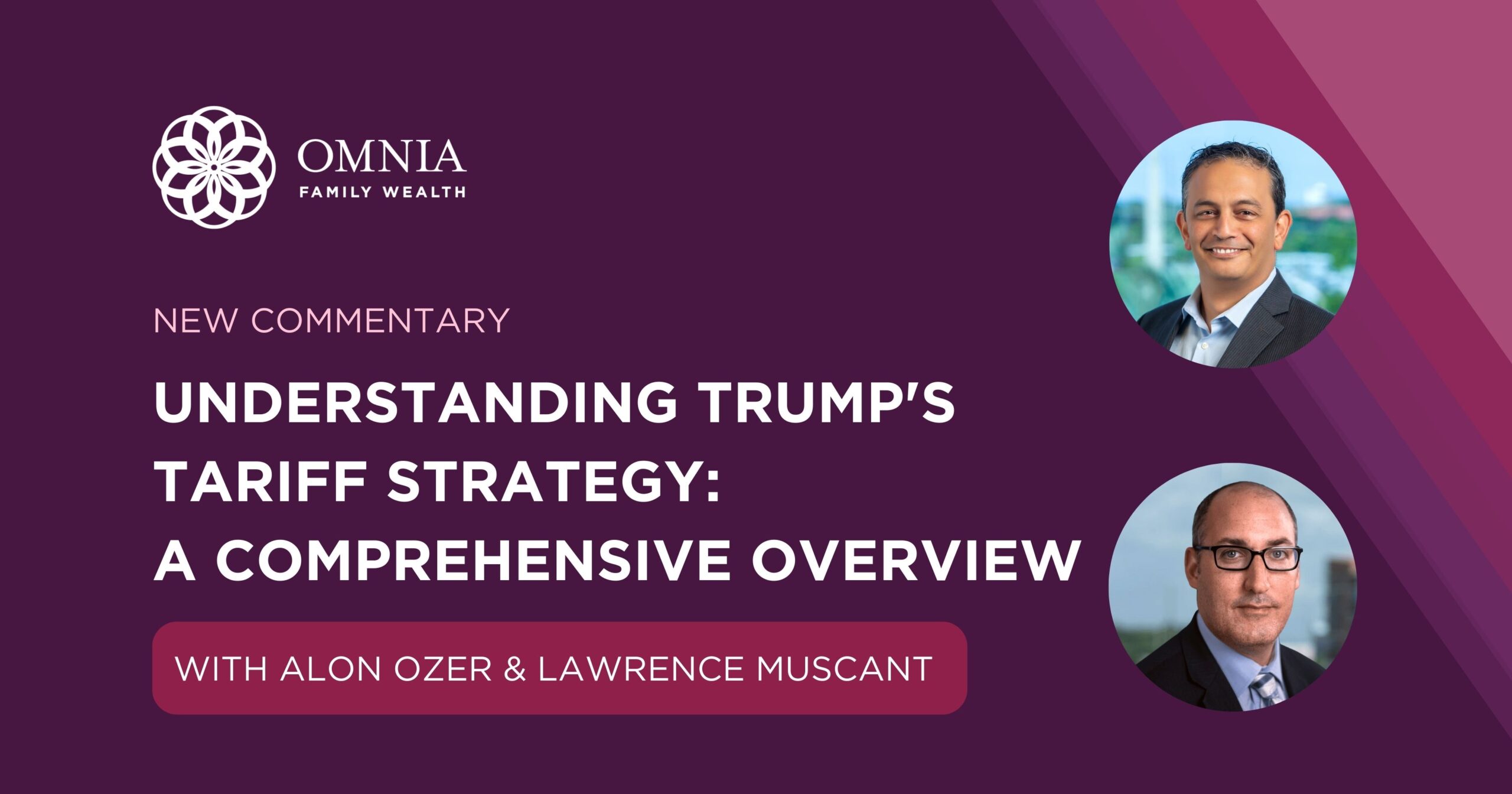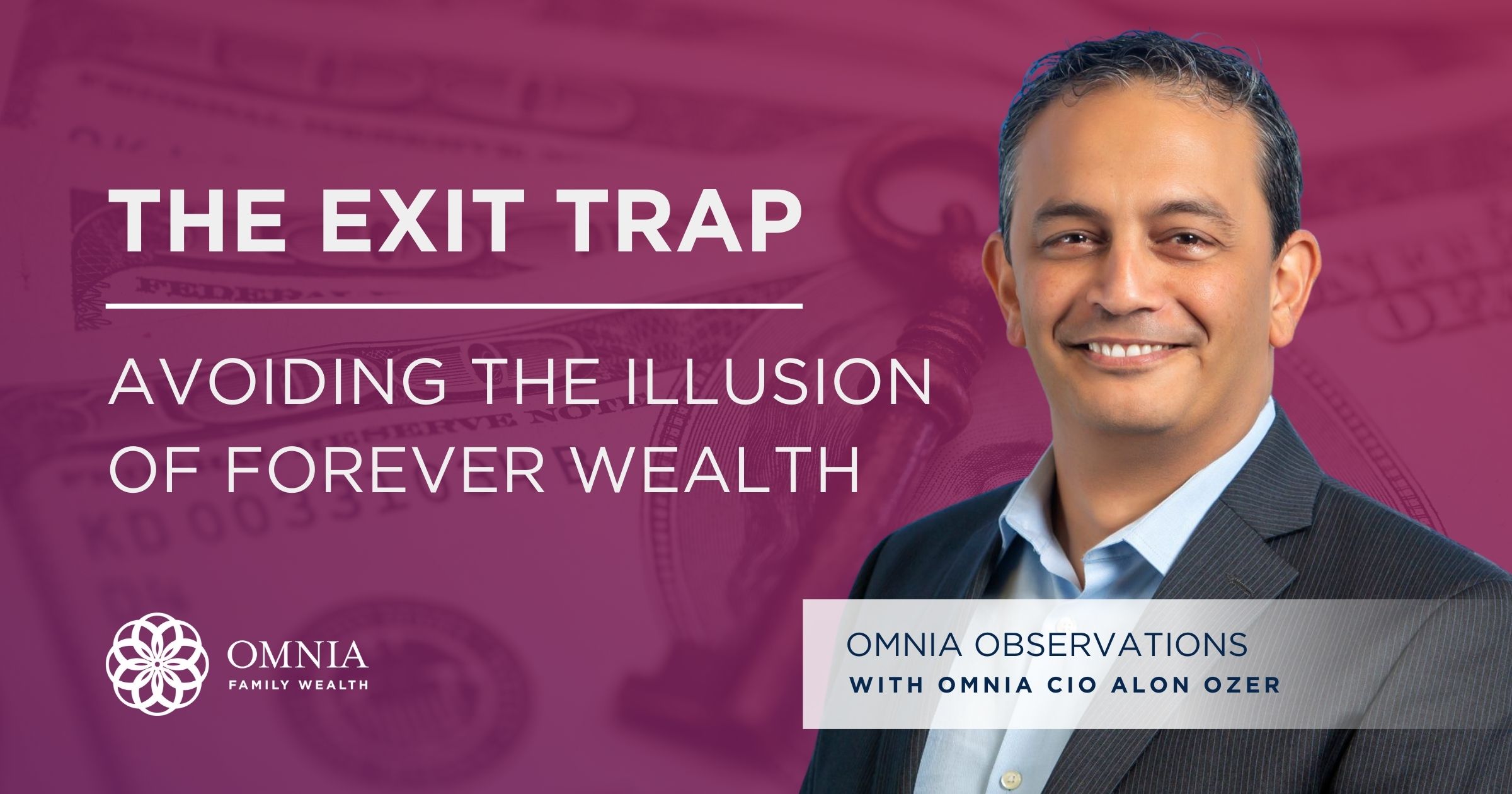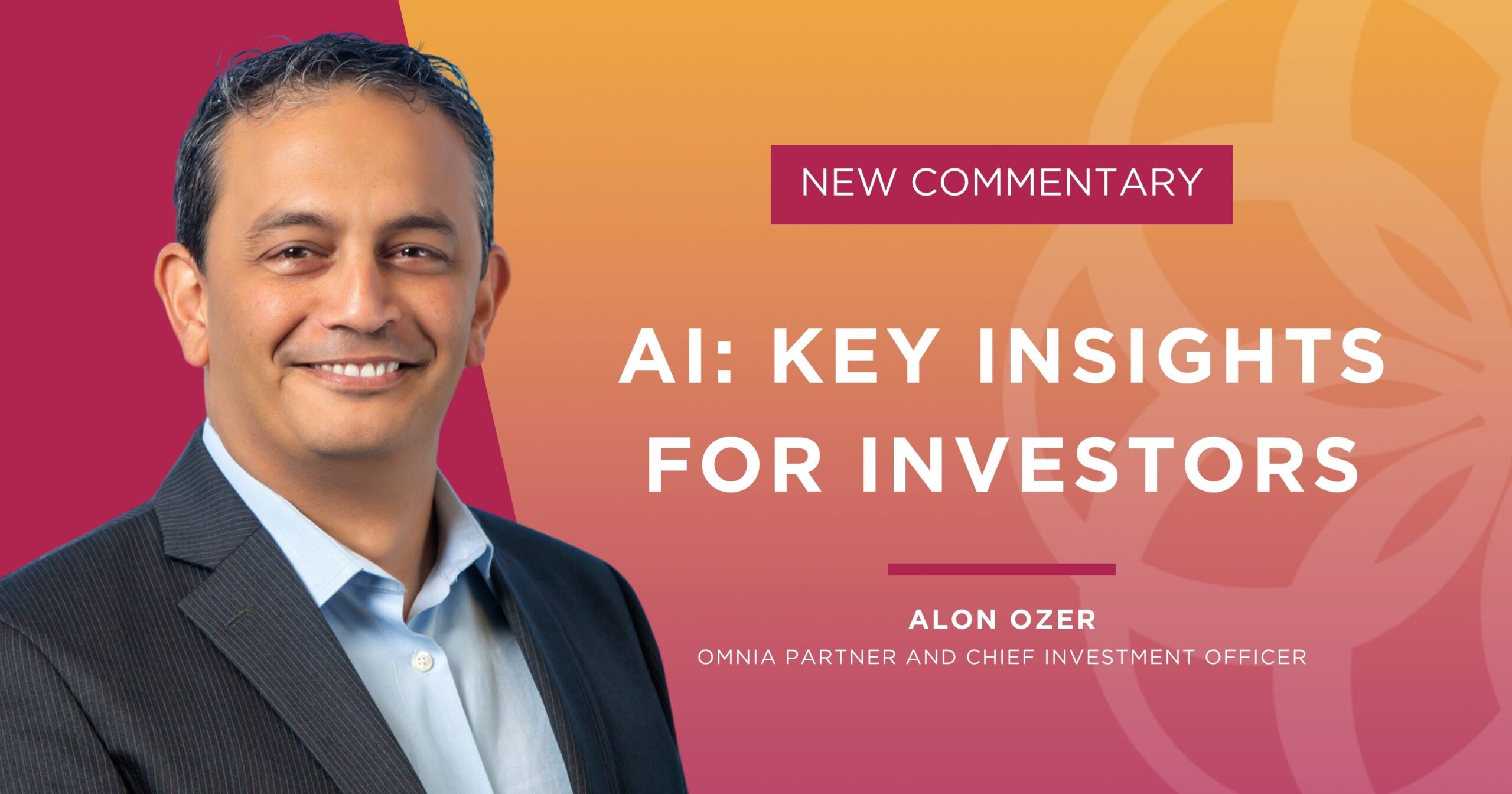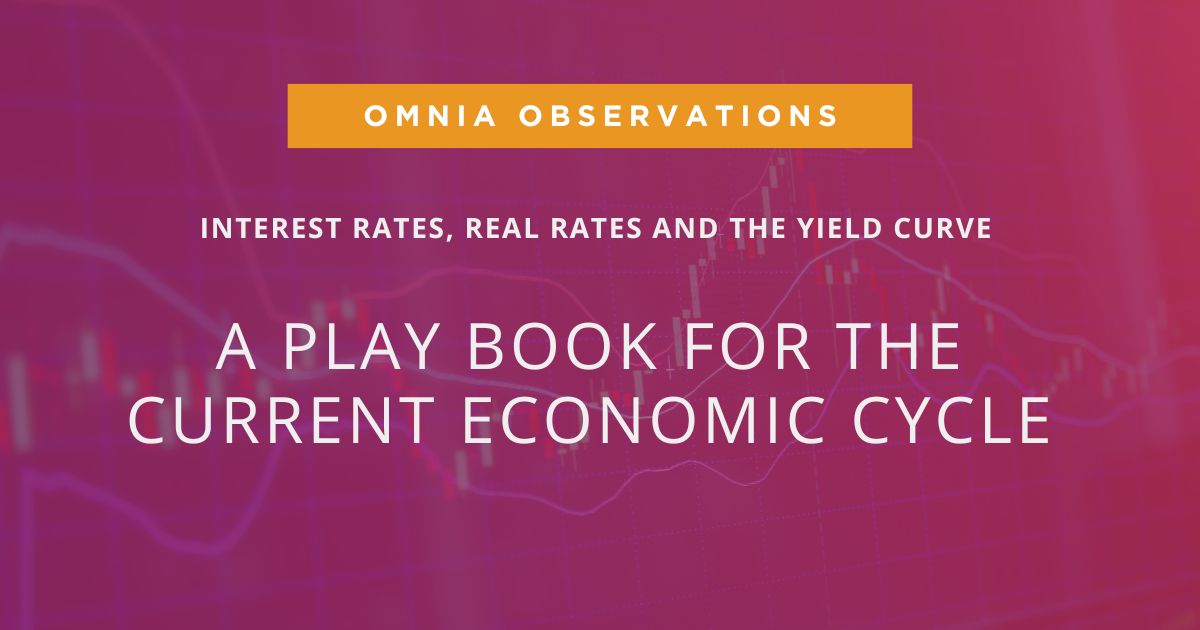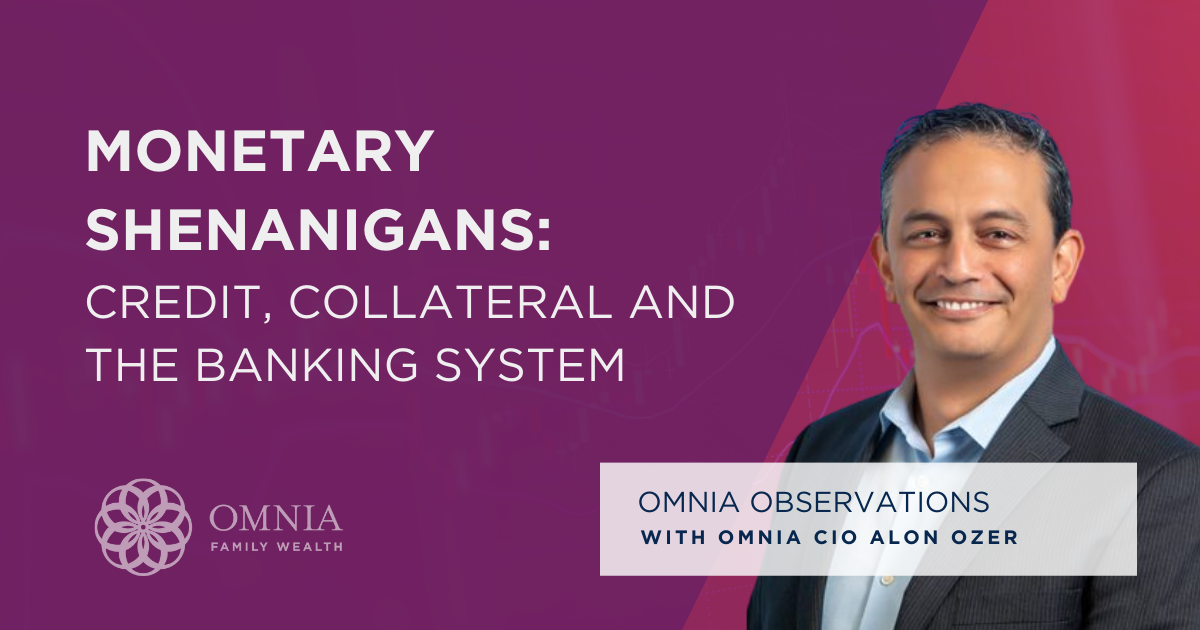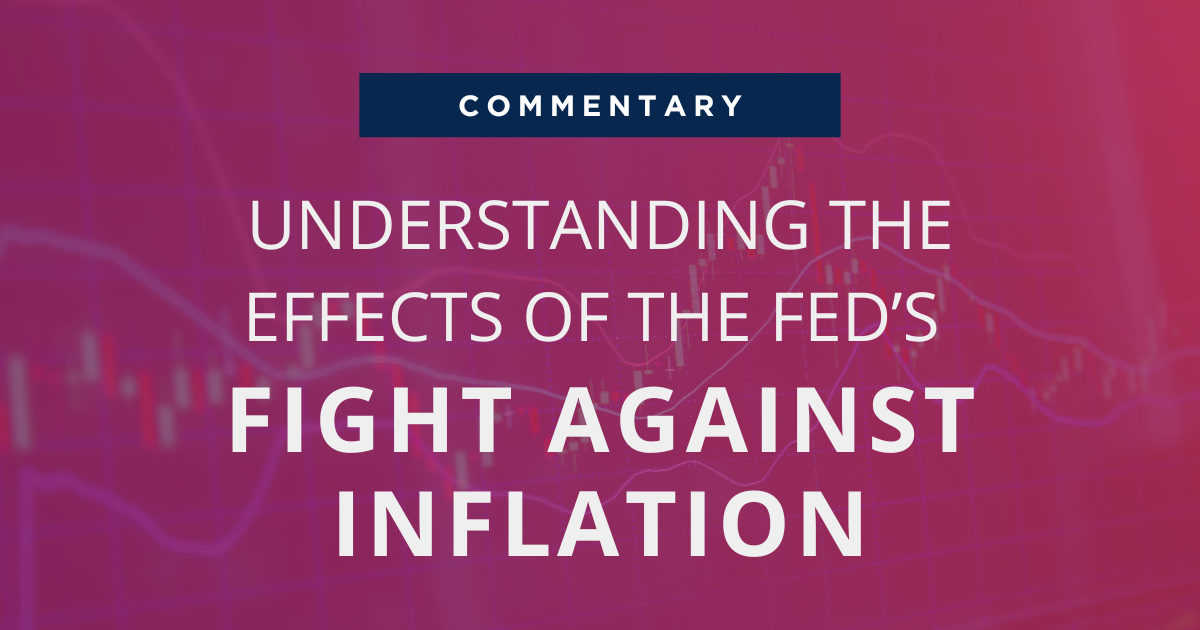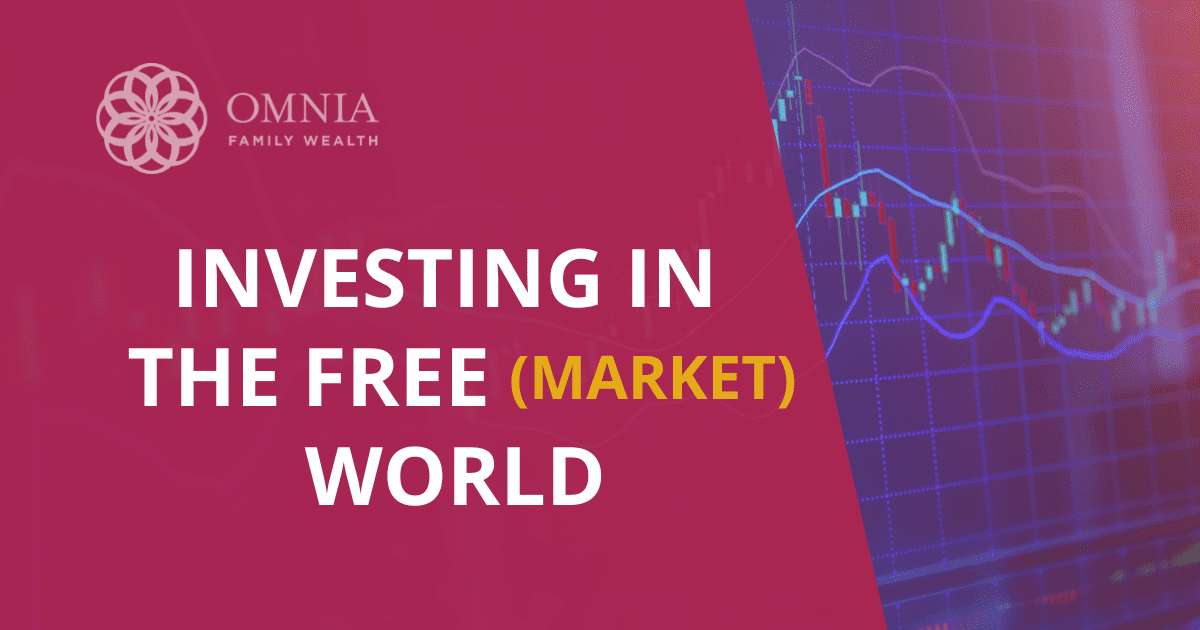
BEYOND THE HEADLINES: HOW GEOPOLITICS MOVES MARKETS
By: Lawrence Muscant, Partner, Executive Vice President
ABOUT THE AUTHOR:

Lawrence Muscant sits at the nexus of the firm’s investment and business-planning teams, translating global political risk and macroeconomic currents into actionable portfolio strategies. Before joining Omnia, Lawrence spent more than a decade in Washington, DC as Senior Vice President of the Foundation for Defense of Democracies (FDD). A sought-after analyst and lecturer, he has briefed and consulted with political and business leaders across North America, Europe, and the Middle East, frequently illuminating the interplay between national security and economic policy, and reinforcing his reputation as a trusted interpreter of global affairs for investors and policymakers alike.
EXECUTIVE SUMMARY
In today’s multipolar world, the intersection of geopolitical risk and global financial markets has become a structural issue. Political events — ranging from military conflicts and trade wars to elections and regulatory changes — are now among the most significant drivers of capital flows, supply chain configurations, energy prices, technological decoupling, and market volatility. Investors who pay attention to geopolitical dynamics are better positioned to mitigate potential losses and take advantage of overlooked opportunities, regime changes, and market mispricing, before these factors are fully reflected in the market.
Geopolitical shocks can lead to significant market movements, yet conventional financial models often fail to accurately account for them. Russia’s invasion of Ukraine, China’s manipulation of trade, and Israel’s conflict with Iran all impacted commodities, currencies, equities, and real assets. Astute investors were able to adjust their positioning well before these developments were reflected in mainstream research, granting them a major investment advantage in emerging markets, defense industries, energy transition strategies, and global macroeconomic investments.
WHERE GEOPOLITICS CREATES ALPHA
The recent conflict between Israel and Iran offers another clear example of how understanding geopolitics can create insight during global crises. When the Islamic Republic of Iran threatened to close the Strait of Hormuz, many expected a sharp increase in oil prices. While prices initially spiked, the market quickly corrected when it became evident the situation would remain contained and not threaten major supply routes.
Why did this happen? Roughly 90% of Iran’s oil exports are allocated to China, its most important economic partner, and almost all that oil passes through the Strait of Hormuz. Closing this passage would have been an act of self-sabotage, damaging Iran’s own economy and driving a wedge between Tehran and Beijing. While many reacted impulsively to headlines, savvy investors who grasped this nuance remained calm and strategic. They allowed their insight, rather than their fears, to guide their decision-making.
For the informed investor, American domestic policy decisions can also create overlooked opportunities for investment. US export controls on advanced chips to China have compelled some US technology companies to redesign their products, impacting global supply chains and earnings. Meanwhile, the Inflation Reduction Act, which allocated over $500 billion in clean energy subsidies, channeled capital toward manufacturers and raw material suppliers aligned with US interests. As the United States seeks to reduce its dependence on critical minerals from China, onshoring and ally-shoring rare earths and manufacturing high-power magnets becomes even more critical for American interests. These changes are not just about policy; they are about positioning. Investors who grasp this will be able to anticipate macroeconomic trends and take advantage of them.
STATE POWER, MARKET IMPACT
Elections and leadership transitions can also impact fiscal and monetary policies, creating risks and opportunities for investors, allowing them to de-risk their portfolios and shift investments intelligently. Gustavo Petro’s 2022 election in Colombia led to a selloff in energy stocks due to increased taxes on oil and coal, while India’s upcoming elections have boosted confidence in pro-growth policies, encouraging infrastructure and manufacturing investments. In Nigeria, fuel subsidy reforms under President Bola Tinubu attracted IMF-aligned investors, and Saudi Arabia’s Vision 2030 initiative, supported by relatively stable leadership, has shifted investments toward tourism, logistics, and renewable energy.
Governments are also increasingly viewing technology and advanced manufacturing as key components of national security, shifting capital allocation from market efficiency to strategic resilience. The US CHIPS and Science Act allocated over $50 billion for domestic semiconductor production, attracting significant investments. Europe is following suit with its own €43 billion Chips Act, while China invests heavily in its “Made in China 2025” initiative. Investors focusing on the intersection of geopolitics and industrial strategy can benefit from government research and development (R&D) efforts and re-shoring incentives, as political will creates opportunities in sectors like defense, semiconductors, and clean energy.
An example of this type of opportunity can be seen in the Israeli Innovation Authority’s strategic decision to invest heavily in deep tech, making a long-term bet on national competitiveness and technological sovereignty. With a focus on AI infrastructure, energy transformation, automation, robotics, and industrialization, the Authority indicated a commitment to industrial-grade innovation that can anchor Israel’s next economic chapter. This partnership is poised to accelerate the development of frontier technologies with both commercial and strategic significance, ensuring that Israel remains a global leader in solving complex, system-level challenges.
Moreover, on July 8, 2025, the US Department of Energy and the Department of the Interior, through their National Energy Dominance Council, signed a Memorandum of Understanding (MOU) with Israel. This agreement aims to enhance collaboration between the two countries in the fields of energy and artificial intelligence. Under the new MOU, the United States and Israel will share research, conduct pilot projects utilizing AI, and develop joint initiatives focused on grid optimization, cybersecurity, and managing energy demands from data centers. The goal is to improve resilience and foster global innovation in these critical areas.
INVESTING SMARTER
Informed investors with access to the right analytical frameworks have a clear strategic advantage. With access to geopolitical intelligence, they can uncover hidden risk, identify unsustainable policy environments, identify mispriced assets, and jump on underappreciated opportunities. In markets increasingly influenced by state behavior, this type of insight is not a luxury; it is a necessity for staying ahead of the curve.
At Omnia Family Wealth, we incorporate geopolitical analysis directly into our investment process, working to provide our clients with an edge in today’s volatile environment. Our investment policy integrates focused geopolitical research, leverages our relationships with experts, and engages in scenario planning as we attempt to anticipate the escalation of conflicts, sanctions, and policy shifts. With this multidimensional approach, we strive to act ahead of market consensus, avoid geopolitical blind spots, and position portfolios for structurally favorable outcomes across various cycles and regimes. Investors who treat geopolitics as a fundamental discipline, rather than a secondary concern, are much better prepared to manage volatility, anticipate significant changes, and take advantage of mispriced opportunities. Over the long term, this understanding can mean the difference between merely surviving market turbulence and potentially thriving during it.
IMPORTANT INFORMATION
The information provided is for educational and informational purposes only and does not constitute investment advice and it should not be relied on as such. It should not be considered a solicitation to buy or an offer to sell a security. It does not take into account any investor’s particular investment objectives, strategies, tax status or investment horizon. You should consult your attorney or tax advisor.
The views expressed in this commentary are subject to change based on market and other conditions. These documents may contain certain statements that may be deemed forward looking statements. Please note that any such statements are not guarantees of any future performance and actual results or developments may differ materially from those projected. Any projections, market outlooks, or estimates are based upon certain assumptions and should not be construed as indicative of actual events that will occur.
All information has been obtained from sources believed to be reliable, but its accuracy is not guaranteed. There is no representation or warranty as to the current accuracy, reliability or completeness of, nor liability for, decisions based on such information and it should not be relied on as such.
Omnia Family Wealth, LLC (“Omnia Family Wealth”) is a registered investment advisor. Advisory services are only offered to clients or prospective clients where Omnia and its representatives are properly licensed or exempt from licensure. Information in this message is for the intended recipient[s] only. Please visit our website https://omniawealth.com for important disclosures. For current Omnia Family Wealth information, please visit the Investment Adviser Public Disclosure website at www.adviserinfo.sec.gov.

